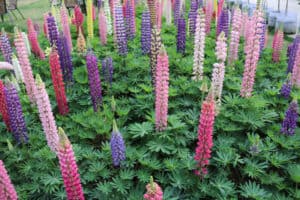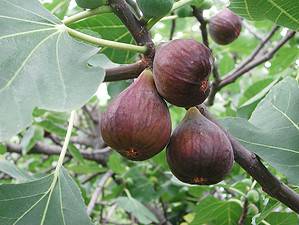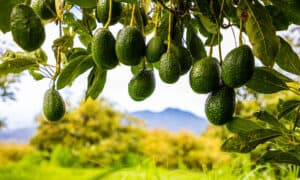Given their similar flavor profiles you may be wondering what the similarities and differences are between anise vs fennel. While they both belong to the same plant family, anise and fennel have very different classifications from one another and have a number of differences between them. But what might these differences look like, and how can you learn how to tell anise and fennel apart from one another?
In this article, we will compare and contrast anise and fennel so that you can fully understand the differences between these two plants. We will go over what they look like physically as well as what they taste like, and will even go over how they prefer to grow in case you’re interested in planting either of them in your own garden. Let’s get started now!
Comparing Anise vs Fennel
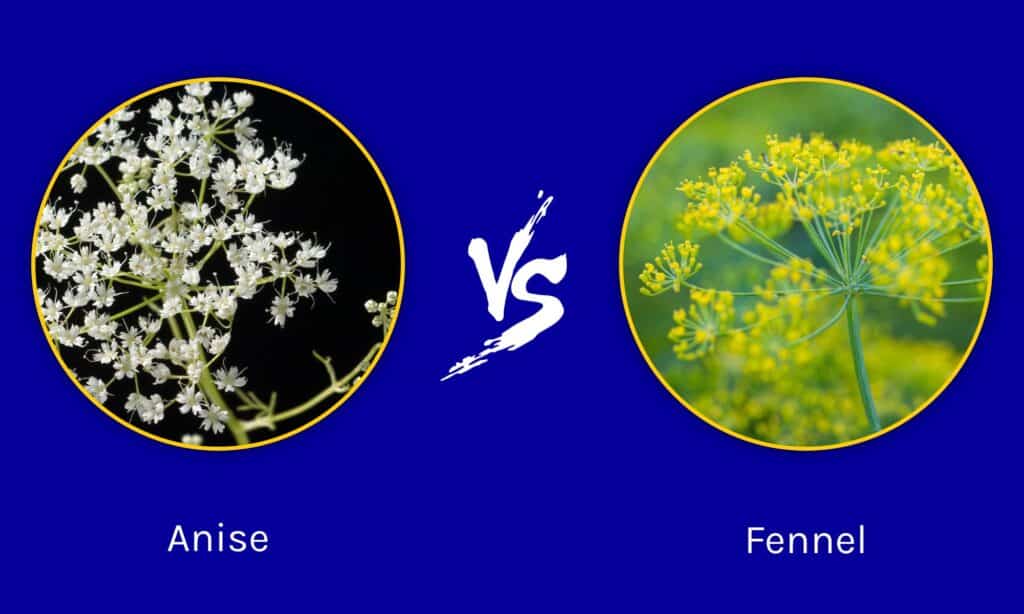
| Anise | Fennel | |
|---|---|---|
| Plant Classification | Pimpinella anisum | Foeniculum vulgare |
| Description | Reaches up to 5 feet tall with dense, simple leaves at the base of the plant. Leaves get more intricate as the plant gets taller, and white or yellow umbels sprout at the end of each stem. Strong and powerful liquorice flavor | Reaches up to 8 feet tall with a large bulbous root that is edible. Leaves are unique and delicate, with hollow stems and bright yellow flowers in umbel shapes when reseeding. Distinct liquorice flavor, but not as powerful as anise overall |
| Uses | Popularly used in tea and sweets, but also used to make liqueurs and utilized in some medicinal capacities | Popular in some culinary capacities, but also used as a primary ingredient for liquorice flavors, breath fresheners, and absinthe |
| Origin and Growing Preferences | Native to Eurasia; prefers well-draining soil and full sun | Native to the Mediterranean; prefers nutritious soil and full sun |
| Annual or Perennial | Annual | Perennial |
Key Differences Between Anise vs Fennel
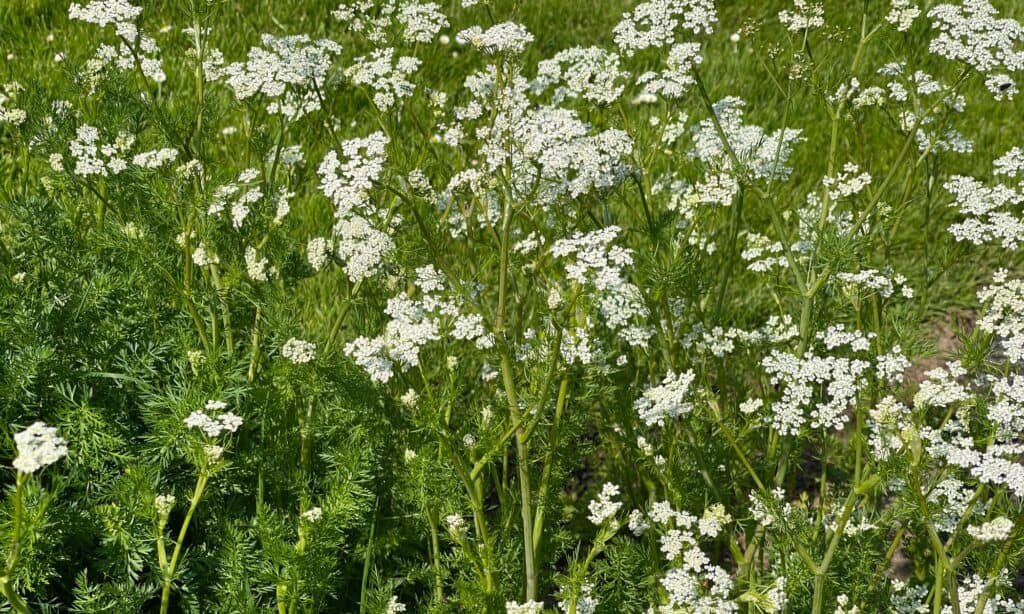
Anise plants grow much shorter and denser compared to the tall fennel plant.
©iStock.com/emer1940
There are a number of key differences between anise and fennel. For example, fennel is a perennial plant, while anise is an annual plant. Fennel grows much taller than anise overall. The leaves found on the average fennel plant are much more delicate compared to the leaves found on anise plants. Finally, anise has a more powerful liquorice flavor compared to the fennel plant.
Let’s go over all of these differences in more detail now.
Anise vs Fennel: Classification
Anise and fennel belong to the same plant family, known as Apiaceae. There are a number of herbs in this family, but anise and fennel belong to different species and genuses from each other. For example, anise is a member of the Pimpinella genus, while fennel is a member of the Foeniculum genus. This gives them some subtle differences from each other.
Anise vs Fennel: Description
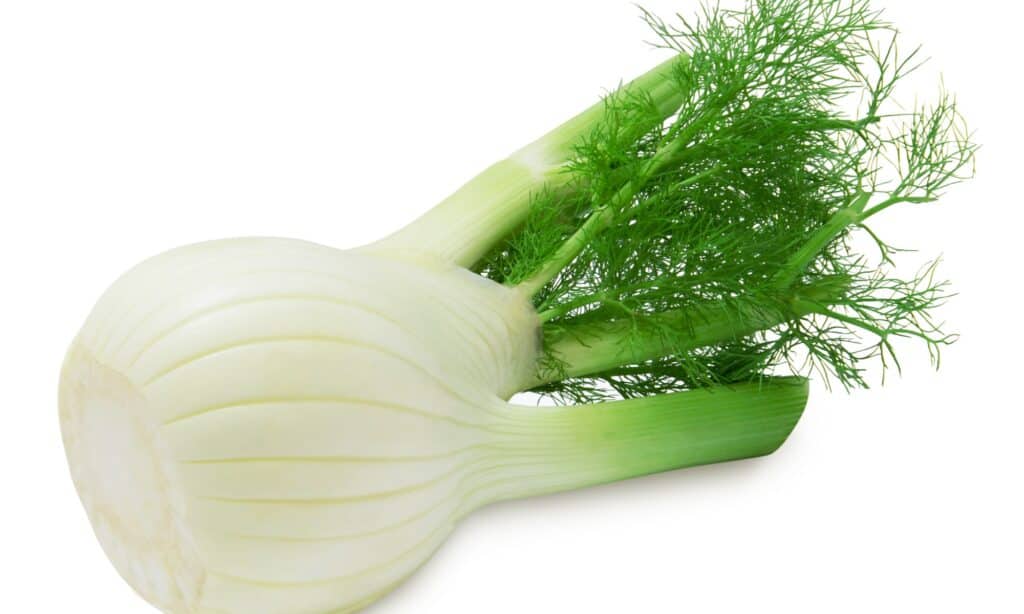
Fennel bulbs are large and typically white in color, while anise does not have a visible bulb or root.
©iStock.com/IlonaImagine
It can be difficult to tell anise and fennel apart at first, but there are a few distinctions you can figure out right away. For example, anise plants grow much shorter and denser compared to the tall fennel plant. Fennel grows using a central, large bulb, while anise grows using a taproot system. When it comes to their leaves, fennel produces dill-like leaves up and down its stalks, while anise has simple leaves at the base of the plant and more intricate leaves the further up you go.
The flowers on both anise and fennel plants are umbels, found in white or yellow colors. Overall, fennel flowers form larger umbels compared to the more frequent and smaller umbels associated with anise. The overall flavor of both of these plants is similar, though anise has a notably sweeter and stronger flavor compared to fennel. Finally, fennel bulbs are large and typically white in color, while anise does not have a visible bulb or root.
Anise vs Fennel: Uses
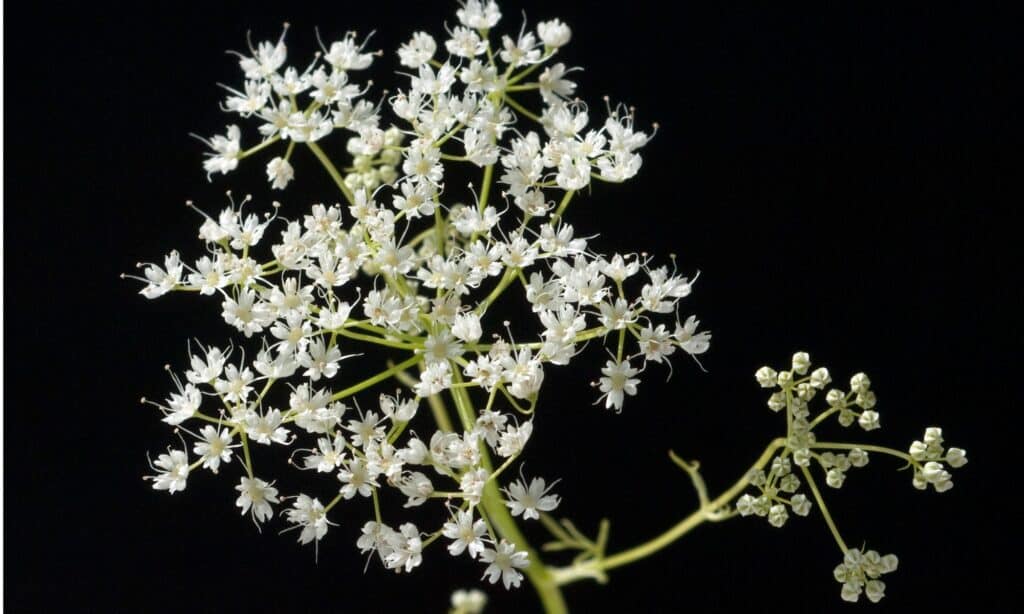
Both of these plants are used in liquor and medicinal production, though the anise seed has a sweeter and more potent flavor compared to the milder fennel plant.
©iStock.com/emer1940
Both anise and fennel are used culinarily given their unique liquorice flavor. However, fennel is typically harvested for its seeds and edible root or bulb, while anise is typically harvested for its seeds only. Both of these plants are used in liquor and medicinal production, though the anise seed has a sweeter and more potent flavor compared to the milder fennel plant. This makes fennel ideal for more savory dishes, while anise is popularly used for sweets.
Anise vs Fennel: Origin and How to Grow
Well they are similar in a number of ways, anise and fennel originated in different locations. For example, Anise is native to Eurasia, while fennel is native to the Mediterranean. Both of these plants enjoy full sun and well-draining soil, though fennel enjoys well-balanced and nutritious dirt in order to produce a large edible bulb. You may prefer to grow fennel in your garden over anise, given the fact that it has an edible bulb that you can easily roast or saute, while anise does not produce this.
Anise vs Fennel: Annual or Perennial
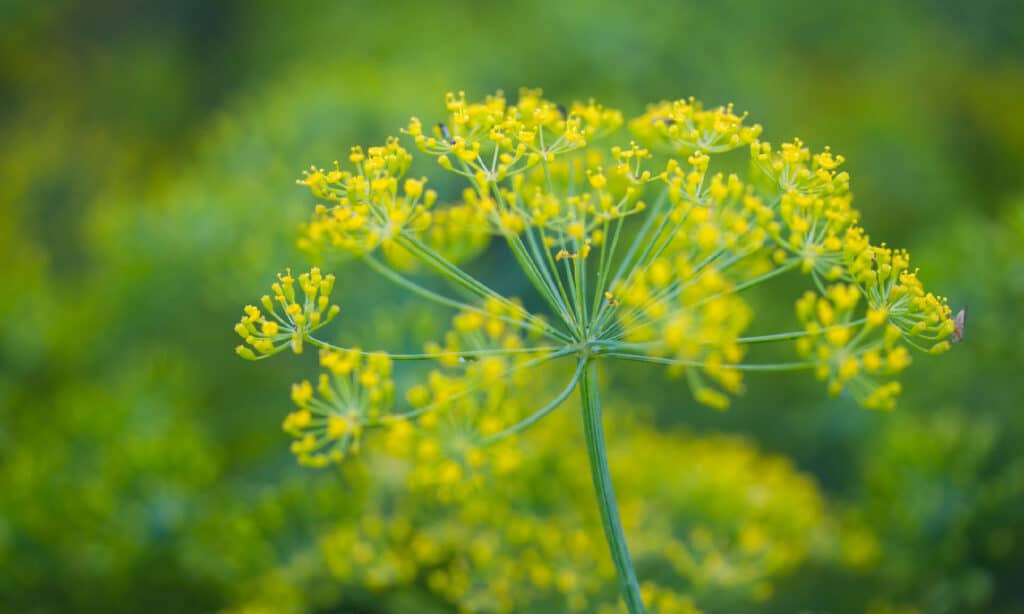
You may prefer to grow fennel in your garden over anise, given the fact that it has an edible bulb that you can easily roast or saute, while anise does not produce this.
©iStock.com/AnnaDudek
A final subtle difference between anise and fennel is the way in which both of these plants grow. For example, fennel is a perennial plant, while anise is an annual plant. If the bulb is left alone in the ground, fennel usually grows back more than two years in a row, while anise is an annual plant that dies each year. However, anise is easily reseeded, if you don’t plan on harvesting the seeds to use as a spice!
The photo featured at the top of this post is © iStock.com/emer1940
Sources
- Anise (Pimpinella anisum L.), a dominant spice and traditional medicinal herb for both food and medicinal purposes, Available here: https://www.tandfonline.com/doi/abs/10.1080/23312025.2019.1673688
- Characterization of Some Italian Types of Wild Fennel (Foeniculum vulgare Mill.), Available here: https://pubs.acs.org/doi/abs/10.1021/jf000636+
Thank you for reading! Have some feedback for us? Contact the AZ Animals editorial team.



